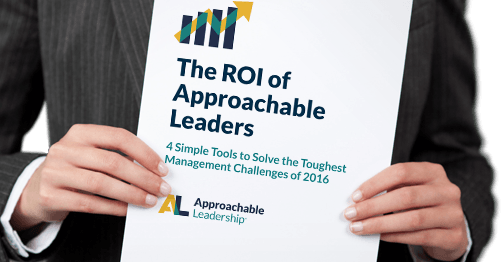Emotional Intelligence. What is it? And why do we need it?
According to Psychology Today, emotional intelligence is “the ability to identify and manage your own emotions and the emotions of others.” It is generally said to include three skills:
- Emotional awareness, including the ability to identify your own emotions and those of others;
- The ability to harness emotions and apply them to tasks like thinking and problem solving; and
- The ability to manage emotions, including the ability to regulate your own emotions, and the ability to cheer up or calm down another person.
Obviously, these are all valuable qualities in any person. They’re especially valuable for leaders and those they lead. But as important as emotional intelligence is today, our rapidly changing world is making these skills even more valuable. Emotional intelligence is becoming as important (perhaps even trumping) hard skills like knowledge base, organization, delegation, and discipline.
As technology continues to advance and more and more tasks are taken over by algorithms and machines, human qualities like emotional intelligence will be even more important. Building connections with customers and coworkers will be the most challenging for machines to replicate.
Fast Company’s recent article provides 7 reasons why you should be hiring emotionally intelligent people now.
- They can handle pressure healthily. Consider workplace stress, which costs companies over $300 billion each year (click here to read our blog post on it). “People with higher levels of emotional intelligence are more aware of their internal thermometer and therefore better able to manage their stress levels.”
- They understand and cooperate with others. In an increasingly globalized workplace, being able to get along with and understand people across a wide array of cultures and backgrounds is a valuable asset to any work environment.
- They’re good listeners. Everyone wants to feel like they’re being listened to and understood. And while a lot of people think they’re good listeners, most of us aren’t as good as we think. It’s not totally our fault though. The human mind processes words much faster than the average person talks. We get bored. You have to really want to hear what the other person is saying to stay focused. This is where emotionally intelligent people come in. “Because of their ability to understand others, highly emotionally intelligent people are in a better position to put their own emotions and desires aside and take others into account.” (Check out our Active Listening tool in The Playbook for tips on improving your listening skills and emotional intelligence.)
- They’re more open to feedback. Some people really just don’t handle criticism well, even when it’s constructive. Because emotionally intelligent people are often more able to set aside their emotions in order to see the big picture, they “are less defensive and more open to feedback, especially when it involves areas of improvement. Their high level of self-regard lets them look positively at areas where they can do better, rather than taking feedback personally.” This means that these employees are more likely to grow, improve, evolve. Leaders with this trait will ask for feedback and shrink power distance with their coworkers.
- They’re empathetic. We’ve talked about empathy a lot. It’s essential to collaboration. We’re all just human. And working with people who we feel understand us and respect our feelings “allows teams to focus on the task at hand rather than become embroiled in internal bickering and politics.”
- They set an example for others to follow. You probably have a few people sticking out in your mind at this point who have high emotional intelligence. These are likely also the same people in your organization that are the “unofficial” informal leaders. “An ability to rise above daily irritations earns people with high emotional intelligence the respect from those above them as well from their colleagues.”
- They make more thoughtful and thorough decisions. It only makes sense that a person who handles pressure well, is a good listener, understands others, and is open to feedback is probably also a person who makes better decisions. “Not only does this result in better decision making overall, it also helps manage damage control when certain decisions lead to negative consequences.”
Knowledge and a high IQ is great. You need hard skills. But our research (stay tuned for some terrific new findings in this area) shows that these emotional intelligence skills deliver huge value to organizations. The bottom line is that soft skills are the new hard skills.
Looking for a way to improve your emotional intelligence? Check out The Approachability Playbook. Not surprisingly, working on your approachability skills will also help boost your skills in the 7 emotional intelligence areas listed above.
Consider the most emotionally intelligent person you know. What qualities stand out to you the most? Do you believe you can improve your emotional intelligence? Does your hiring process look for more emotionally intelligent individuals?











